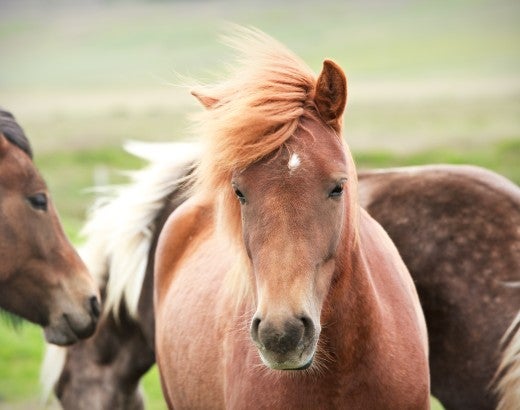During his years in the Senate, now-President Joe Biden supported dozens of animal welfare measures, including legislation to require dolphin-safe labeling on tuna, stop canned hunts, annually prohibit the use of taxpayer dollars to fund federal inspection and approval of meat at horse slaughterhouses (effectively stopping horse slaughter in the U.S.), halt animal fighting, eliminate federal subsidies for fur, and more. His 2020 running mate, now-Vice President Kamala Harris, also had a record of support for animal protection measures in her prior public service.
We were encouraged, and after the 2020 election we went right to work on an animal welfare agenda for the Biden administration, meeting with transition teams and representatives of federal agencies to make our case. We were determined to reinvigorate federal commitment to animal protection policies across a host of agencies, and we gave our best toward that goal during the Biden administration’s first year.
President Biden’s State of the Union address Tuesday night rightly focused on the most urgent of challenges facing our nation. The global pandemic, political tensions, a tumultuous economic climate and (most recently) Russia’s invasion of Ukraine have brought heightened pressures into play, and no one with a realistic view would expect to see overwhelming progress in federal policies not directly related to those concerns.
As always, however, even amidst such strains, our mission is to advocate for animals. Our primary regulatory goal over the last year has been to persuade federal agencies to rectify adverse policies on animal protection issued under the previous administration. In some cases, we pushed for urgent review and reconsideration, and we’ve seen positive action.
Among the key agency actions we championed:
- The National Oceanic and Atmospheric Administration designated six new areas as critical habitat for killer whale populations off the coasts of British Columbia, Oregon and Washington.
- The National Marine Fisheries Service announced a final rule to protect Hawaiian spinner dolphins from irresponsible wildlife tourism.
- The Fish and Wildlife Service restored the Migratory Bird Treaty Act's authority over businesses responsible for incidental deaths of migratory birds caused as an indirect result of their operations.
- The USDA finalized its rule to require facilities regulated by the Animal Welfare Act—including research facilities, puppy and kitten mills and roadside zoos—to have emergency response plans to care for their animals in the event of disaster.
Right now, we’re pushing the administration to advance three declared commitments on issues of high priority for us:
- The USDA announced that it would begin a new rulemaking process on the Organic Livestock and Poultry Practices Rule, signaling a renewed government commitment to improving the treatment of millions of farm animals raised under the national organics standard.
- The Fish and Wildlife Service initiated a status review of wolves in the Northern Rockies, after we and our allies petitioned for these wolves to be relisted under the Endangered Species Act. Relisting is necessary because recent changes in wolf hunting laws in Idaho and Montana threaten wolf populations there.
- The USDA announced its plan to issue a new Horse Protection Act (HPA) rule to combat horse soring, one informed by new research and recommendations from the National Academies of Sciences, Engineering and Medicine.
Even in a good year, it’s natural for us as advocates to want and demand more from our government. We’re anxious to see prompt and substantive action from the Biden administration on the nation’s wolves, for whom 2021 was a year of intense persecution by trigger-happy state agencies. We want to see an immediate relisting of wolf populations in the Northern Rockies under the Endangered Species Act. But we need more. We need the Fish and Wildlife Service to develop and implement a comprehensive long-term plan for the nationwide recovery of this iconic species.
It’s also time for the Bureau of Land Management to reshape its wild horse and burro programs with humane, long-term, sustainable management strategies that include a well-planned reliance on fertility control vaccines, an approach we and other stakeholders have championed. To address an admittedly heated question, the plight of wild horses and burros on our western rangelands, we have advanced a rational, humane and scientific solution.
The actions already taken or proposed by the Biden administration will shape the future of all kinds of animals: those swimming in our oceans, those running free in our forests or on our rangelands, those following their migratory flyways, and those on farms and in research institutions and other enterprises whose fate is entirely dependent on our human mercy. We will continue to set a high bar for this administration, and we hope to see it rise to the challenge, because whether it involves companion animals, farm animals, animals in laboratories or wild animals at risk on land or at sea, their needs are as pressing as ever. Greater attention and stronger commitments could not come fast enough.



